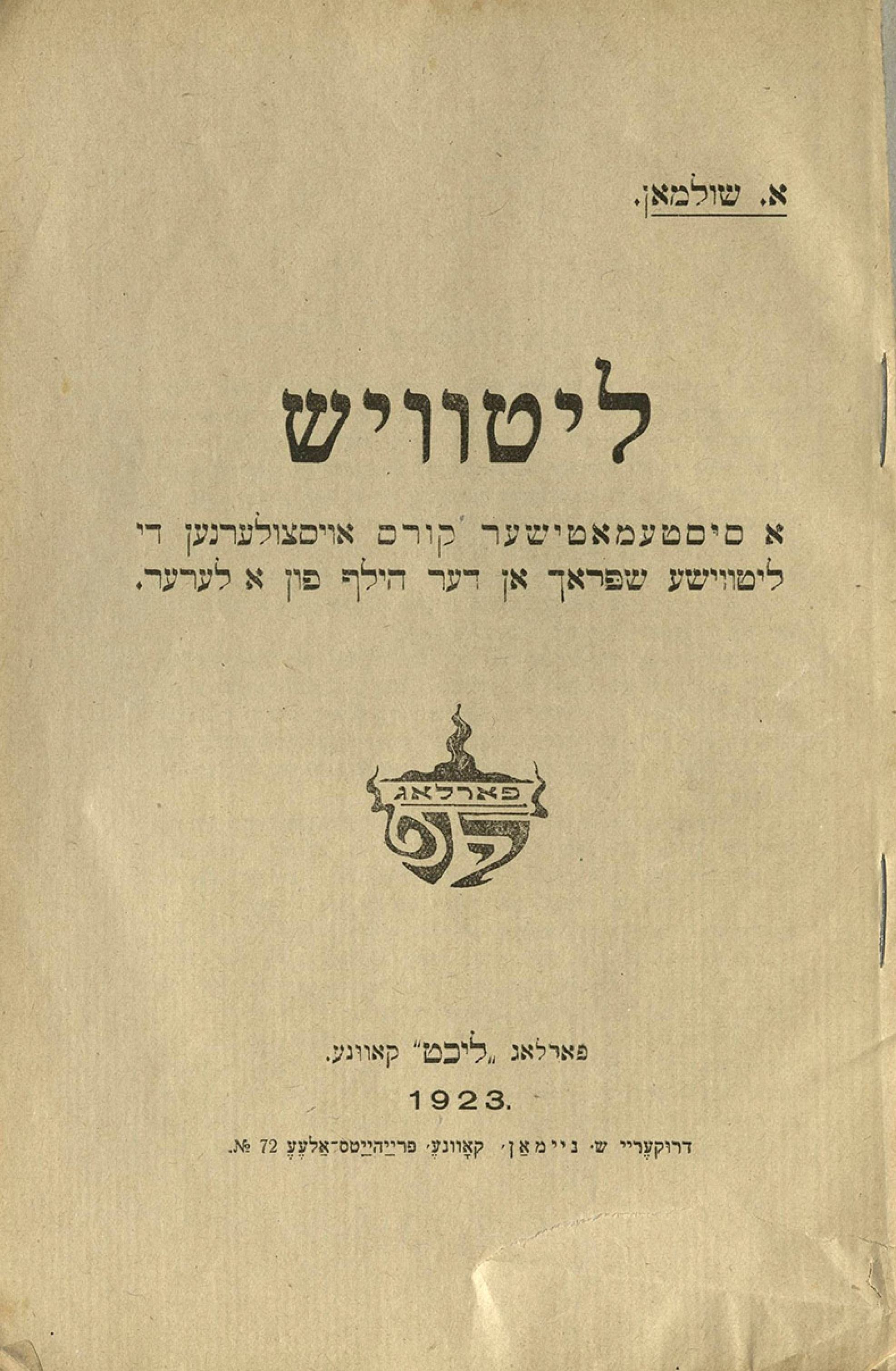Learning Lithuanian Step by Step: A Jewish Story

|
Max Weinreich Fellowship Lecture in Baltic Jewish Studies
The Abram and Fannie Gottlieb Immerman and Abraham Nathan and Bertha Daskal Weinstein Memorial Fellowship in Eastern European Jewish Studies, the Abraham and Rachela Melezin Memorial Fellowship and the Maria Salit-Gitelson Tell Memorial Fellowship Admission: Free |
American Jews always seem taken by surprise by the idea that some of their ancestors spoke Lithuanian. But it is indeed true – Jews living in newly independent Lithuania, beginning in 1918, certainly did. While Yiddish existed alongside of it, Lithuanian became the official language of the state and Jewish citizens needed to learn it. This lecture aims to explain the cultural processes that took place primarily in interwar Lithuania and which significantly influenced the linguistic integration of Lithuanian Jews, laying the foundations for their engagement with Lithuanian culture.
The uneven proficiency in the Lithuanian language across different generations of Jews posed challenges both for Jewish organizations striving toward the goal of Jewish Lithuanisation, and for Lithuanians themselves, who sought—through Jewish schools—to teach Jews the Lithuanian language.
These educational efforts were multifaceted. They included the preparation of school and professional Lithuanian language textbooks specifically for Jewish audiences, the recruitment of Lithuanian language teachers for Jewish schools, the establishment of collaborative organizations between Lithuanians and Jews, translations of literature from Lithuanian into Hebrew and Yiddish, or from Yiddish into Lithuanian, and the adaptation of Jewish religious terminology into Lithuanian-language literature.
At the same time, a pressing question arose among contemporaries: could a citizen of Lithuania who spoke only Yiddish or Hebrew, and could sign their name only in Hebrew script, be considered literate—and eligible to vote? Professor Jurgita Verbickienė will elucidate the story of how an ethnic minority acclimated to a new national and cultural environment.
About the Speaker
Jurgita Šiaučiūnaitė-Verbickienė is a professor at Vilnius University and Head of the Research Centre for the History of East European Jews. She also chairs the Humanities and Social Sciences Expert Committee at the Lithuanian Science Council and serves on the board of the GWZO, Leibniz Institute network, in Germany. A historian by training, she graduated from Vilnius University's Faculty of History and her research focuses on the history of Jews in the Grand Duchy of Lithuania, non-Christian communities, socio-economic history, historical demography, the Lithuanization of Jews in the interwar period, and the representation of Jewish heritage in contemporary Lithuania. Professor Šiaučiūnaitė-Verbickienė is the founder and leading figure of the Vilnius University commemorative project "Recovering Memory – Grįžtanti atmintis." She is the recipient of the Fellowship in Baltic Studies at the YIVO Institute for Jewish Research for 2024-25.




